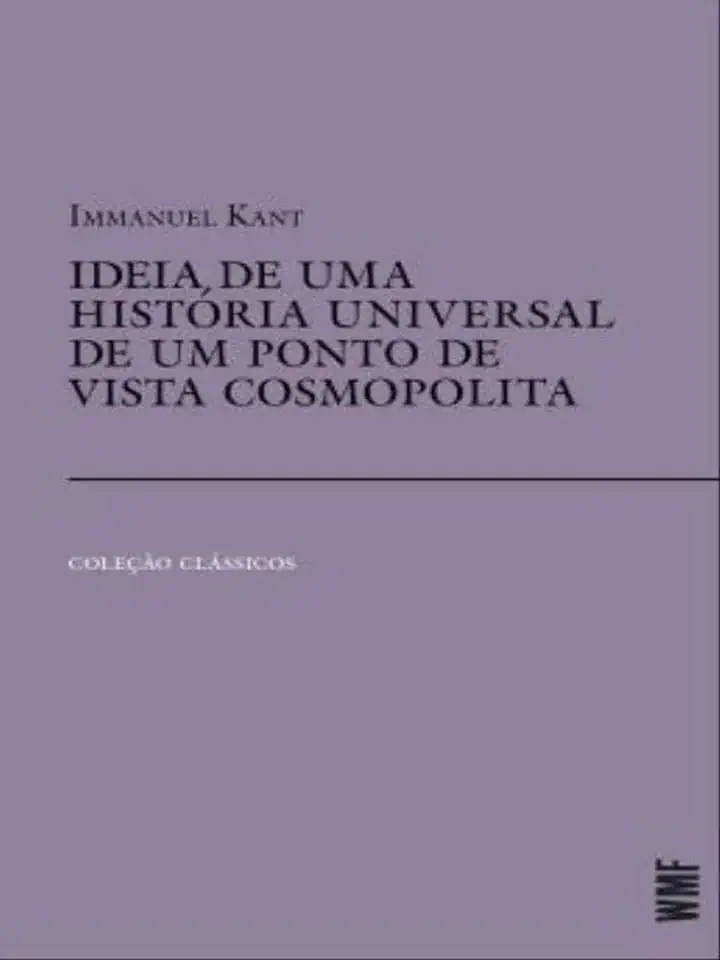
Idea for a Universal History with a Cosmopolitan Purpose - Immanuel Kant
Idea for a Universal History with a Cosmopolitan Purpose
Introduction
In his influential work, "Idea for a Universal History with a Cosmopolitan Purpose," Immanuel Kant presents a thought-provoking and comprehensive vision of human history. Kant argues that history is not merely a random sequence of events, but rather a purposeful and progressive process guided by a universal plan. He proposes a cosmopolitan perspective that transcends national and cultural boundaries, emphasizing the interconnectedness of humanity and the ultimate goal of achieving a global community based on reason and morality.
The Teleological View of History
Kant's philosophy of history is rooted in the concept of teleology, which posits that history is guided by a higher purpose or end goal. He argues that human history is not simply a series of disconnected events, but rather a coherent narrative that unfolds according to a predetermined plan. This plan, Kant suggests, is the gradual development of human reason and the realization of a universal moral order.
The Four Stages of History
Kant divides human history into four distinct stages, each representing a progressive advancement in the development of human reason and morality. These stages are:
- The Savage State: This is the initial stage of human history, characterized by a lack of civilization and the dominance of brute force.
- The Barbaric State: In this stage, humans begin to form societies and develop rudimentary forms of law and government. However, they are still prone to violence and conflict.
- The Civilized State: This stage marks the emergence of advanced civilizations, with established political systems, laws, and cultural institutions. However, these societies are still plagued by inequality, oppression, and war.
- The Cosmopolitan State: This is the final and ultimate stage of human history, in which all nations and cultures come together in a global community based on reason, morality, and peace.
The Cosmopolitan Ideal
Kant's vision of a cosmopolitan state is central to his philosophy of history. He argues that the ultimate goal of human history is the establishment of a global community that transcends national and cultural boundaries. This cosmopolitan ideal is based on the principles of reason, morality, and the recognition of the inherent dignity of every human being. Kant believed that through the progressive development of human reason and the spread of enlightenment, humanity could eventually overcome its divisions and achieve a state of universal peace and harmony.
The Role of Education and Enlightenment
Kant emphasizes the crucial role of education and enlightenment in推动ing the progress of human history. He argues that education is the key to unlocking human reason and fostering moral development. By promoting the spread of knowledge and critical thinking, humanity can overcome ignorance, superstition, and prejudice, and move closer to the realization of the cosmopolitan ideal.
Conclusion
"Idea for a Universal History with a Cosmopolitan Purpose" is a profound and thought-provoking work that offers a unique perspective on human history and the future of humanity. Kant's teleological view of history, his concept of the cosmopolitan state, and his emphasis on the importance of education and enlightenment provide a compelling framework for understanding the past and envisioning a better future for our world. This book is a must-read for anyone interested in philosophy, history, and the pursuit of a more just and peaceful world.
Enjoyed the summary? Discover all the details and take your reading to the next level — [click here to view the book on Amazon!]